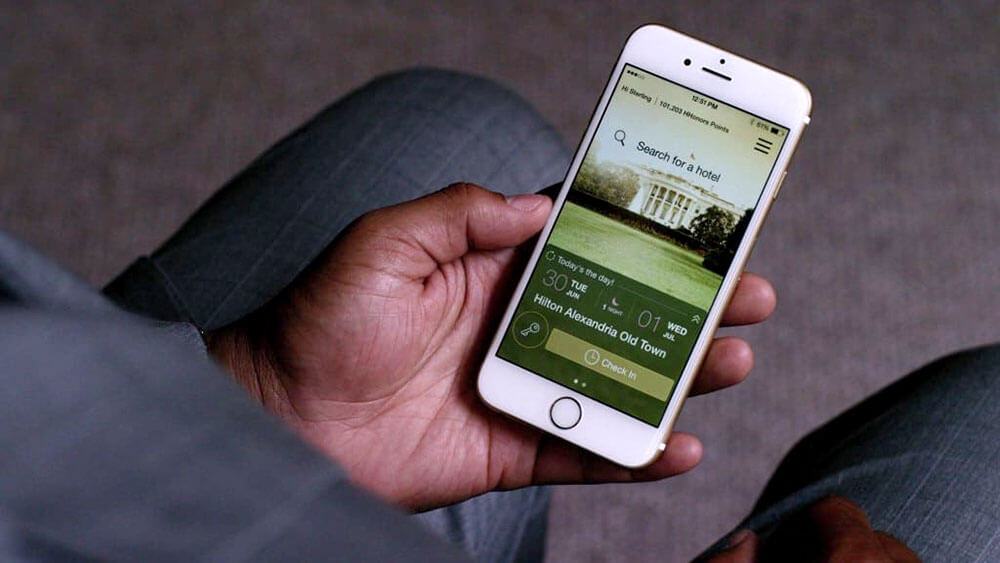Attendees used to rely on one screen for all their housing needs: their desktop computer. But as the mobile revolution shrinks the size of their devices, they’re enjoying the anywhere-anytime ability to compare room rates from their smartphones, tablets, and smartwatches. And their searches are taking them to many digital destinations outside the “Hotel & Travel” section of the typical conference website.
“Attendees continue to use the internet to search for options outside the block,” said Gary Schirmacher, CMP, senior vice president for industry presence and strategic development at Experient. “The desire to find lower rates and more amenities that are ‘free’ like Wi-Fi, breakfast, parking, transportation, and health-club access at limited-service properties where attendees can still capture loyalty points and enjoy lower rates is driving interest in non-headquarter-hotel options.”
Not that room blocks are going away. Kathy Rasmussen, director of housing client services at Experient, said that offering incentives such as free Wi-Fi and breakfast options can motivate attendees to book within the block. In addition to bundling more benefits into rooms, organizations continue to articulate messaging on the role that the room block plays in keeping registration rates low. Barry McDonald, vice president of sales and marketing at onPeak, told Convene that “educating the attendees and exhibitors on why they should take advantage of staying in the block” is one of the keys to picking up additional room nights.
But attendees are hearing conflicting messages. Online travel agents like Trivago are highlighting the availability of discounted hotel inventory, while big hotel brands are touting members-only rates. Such efforts are resonating with plenty of attendees. A 2015 Tourism Economics study of 170-plus events revealed that more than 34 percent of rooms are being booked outside the contracted room block. That’s no surprise to Gregg Talley, CAE, president and CEO of Talley Management Group.
“This is a battle that associations lost years ago,” Talley said. “Today’s traveler has access to far more information than we can provide them, and they’re going to use it to find their housing.”
Future Will Be Mobilized
While you may no longer have control over your attendees’ housing decisions, you can take steps to add greater convenience to the reservation process. As major hotel brands unveil sophisticated new mobile apps that make booking a hotel a three-click, hassle-free experience, you should consider ways to enhance your own mobile offerings.
Indeed, many meeting organizers have focused on the functionality of apps in the on-site environment — recommending relevant sessions and facilitating networking connections — but Schirmacher thinks that a well-designed event app can also play a pivotal role in simplifying travel booking. “Being able to make all arrangements via the conference app before the conference,” he said, “is driving more clients to think about how they can actually make a conference app available to individuals before they even pay for registration.”
Embracing Alternatives
Attendees aren’t just looking at new screens, though. Many of them are also considering new lodging options out-side the hotel industry such as Airbnb, OneFineStay, VRBO, and HomeAway. onPeak has met with a number of alter-native accommodations companies over the past 18 months, McDonald said, and has “some standard agreements in place with the traditional companies like Airbnb.” Experient launched a partnership with Airbnb in 2015 designed to provide additional options in situations with high levels of compression. But nearly two years later, the most talked-about lodging alternative is still a last resort for meeting organizers.
“Some clients [who] know they have attendees already using home-sharing options are considering adding an Airbnb option earlier in the booking process,” Rasmussen said. “However, most want to ensure that attendees get a chance to stay in the contracted hotel blocks to enjoy the networking experience.” She added: “We are not seeing clients wanting to include Airbnb as a choice in their housing block from the opening of the housing block. As Airbnb finds more ways to build trust with planners and have the ability to include rebates, there may be more of a desire for clients to engage with the Airbnb brand earlier in the process.”
While meeting professionals may not have established relationships with Airbnb, the company has already gained the trust of some travelers, and it seems likely that increasing numbers of conference attendees will be booking apartments, homes, and other non-hotel properties. A recent analysis conducted by the Cowen Group financial-services firm forecasts that Airbnb bookings will increase from around 79 million room nights in 2016 to a billion room nights a year by 2025. “We know our attendees are using Airbnb,” Talley said. “Why wouldn’t we try to provide that option to make it as easy as possible with as many alternatives that they may want to consider? We talk a lot about giving attendees the power to manage their own experience. That should include to have the ability to make decisions about where they want to stay.”
Problem with Penalties
As the traditional room-block model faces challenges, some organizations are experimenting with forcing attendees who book outside the block to pay higher registration fees. This may seem like a way to “reward” in-the-block attendees with a discount, but Talley thinks that the approach will backfire. “There’s too much competition out there,” he said. “You’re not going to be able to punish your way to winning. Instead, it will just upset the attendees who can choose to go to another meeting.”

